Waiting for answers: Here are some of the oldest cold cases police have solved
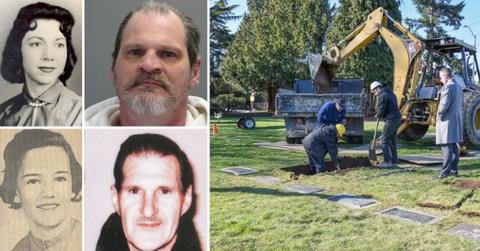
Cold cases are an unfortunate commonality in the true crime world. Some families never get answers on what happened to their loved ones.
Some have to wait years. In the following cases, the families had to wait for decades. But technological advances have helped police close some of these cases and bring the alleged killers to justice and answers to the victims.
These are some of the oldest cold cases that have been solved.
THE MURDER OF IRENE GARZA
How Long Did It Take To Solve The Case?: 58 years
In April 1960, Irene Garza visited the Sacred Heart Catholic Church in McAllen, Texas, for a confession but never returned home. Days later, one of her shoes would be found near the church, and the following week, her body was discovered in an irrigation canal. An autopsy report detailed that Garza had been severely beaten and raped.

Authorities immediately began to look at suspects, with a then 27-year-old priest, Rev. John Feit, who served at the Sacred Heart Catholic Church, according to the Washington Post. Feit reports hearing her confession but denied any involvement in her murder.
The case would go cold for several decades with no leads.
It wasn’t until decades later that the suspected priest would be convicted of Garza’s murder. Evidence, such as a photo slider and a witness statement from a woman who had been assaulted by the priest, tied Feit to the murder.
In 2016, police arrested Feit and charged him with murder. A court sentenced Feit to a life sentence. On Feb. 14, 2020, Feit died from a cardiac arrest while serving his prison sentence.
THE DISCOVERY OF STEVEN ALEXANDER CRAWFORD’S BODY
How Long Did It Take To Solve The Case?: 58 years
On July 11, 1963, a fisherman discovered the decomposing body of a toddler. The body was fully dressed and covered with a blanket, quilt and iron molds to weigh the boy down in the water. For several decades, the identity of the young body was never discovered.
According to ABC News, it wasn’t until July 1, 2021, when the boy’s identity was found through a genetic genealogy match. Authorities used the DNA of the body to his possible half-brother, who claimed his younger brother went missing during the 1960s in Oregon.
Once the DNA proved to be a match, police then searched for the birth records from 1960 and 1961, leading to the body being identified as Steven Alexander Crawford.
As of now, the cause of Alexander’s death is still unknown.
THE MURDER OF MARGARET “PEGGY” BECK
How Long Did It Take To Solve The Case?: 56 years
In 1963, a then-unknown suspect sexually assaulted and murdered 16-year-old Margaret “Peggy” Beck in her Girl Scouts tent at the Flying G Ranch in Colorado. At the time of her death, Beck worked as a newly hired counselor for the Girl Scouts program. There were no suspects tied to Beck’s death at the time.
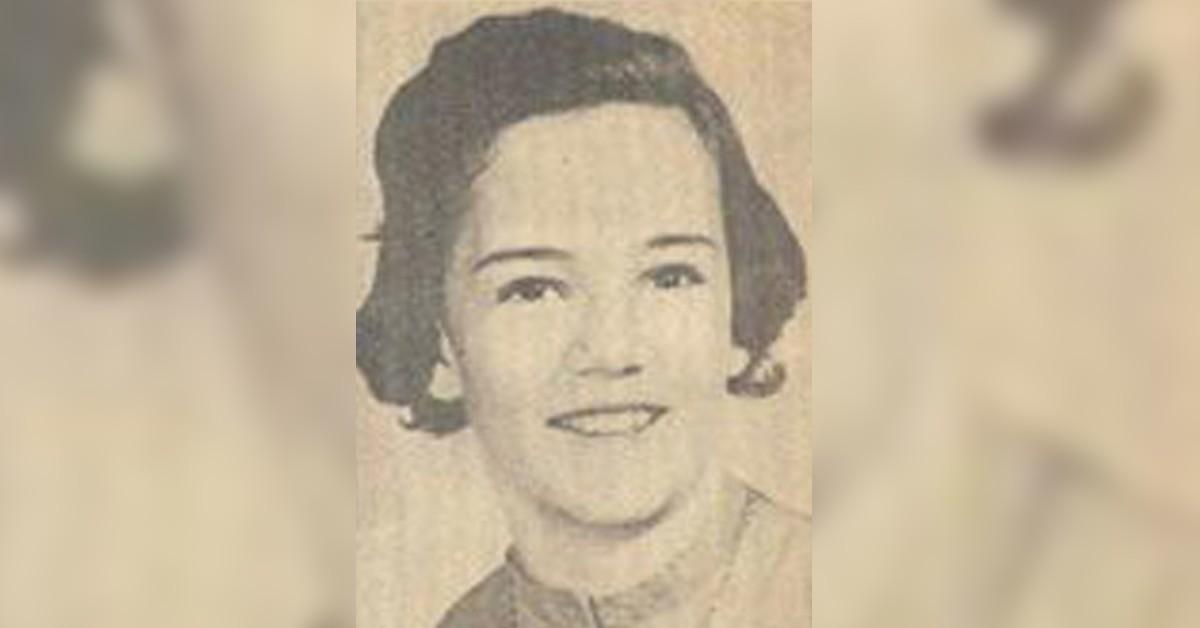
In June 2019, improved genetic genealogy testing allowed for authorities to conduct a more thorough investigation on the case. The investigation was closed when the DNA of James Raymond Taylor matched to the evidence found at the scene.
According to the Cox Media Group, police issued a warrant for Taylor’s arrest, but he hasn’t not been seen since 1976.
If still alive, Taylor would be 81 years old.
THE MURDER OF EVERETT DELANO
How Long Did It Take To Solve The Case?: 53 years
On Sept. 1, 1966, Police Officer Everett Delano was shot to death during a robbery at Sanborn’s Garage in Andover, New Hampshire. Despite the victim’s affiliation to law enforcement and the extensive investigation that followed, no suspects were detained for the murder.
- Cold But Not Forgotten: Front Page Detectives to feature cold case stories all week
- Iowa teen's mom told police she knew who killed her daughter. Fifty years later, police confirmed she was correct.
- Coffee Cup Helps Pennsylvania Police Identify Suspect Accused Of 1975 Cold Case Murder Of 19-Year-Old Woman
According to the New Hampshire Department of Justice, the Everett case was closed on Feb. 20, 2019. However, after reopening the case in 2013, authorities discovered the now-deceased Thomas Cass murdered Everett during the robbery, thanks to witness statements and physical evidence.
Due to Cass’s death, no criminal charges were placed against him.
THE MURDER OF SUSAN GALVIN
How Long Did It Take To Solve The Case?: 52 years
In 1967, a then-unknown assailant sexually assaulted and strangled 20-year-old Susan Galvin to death, leaving her body in the Seattle Center’s parking garage elevator. Despite a thorough investigation of the crime scene, the case went cold.
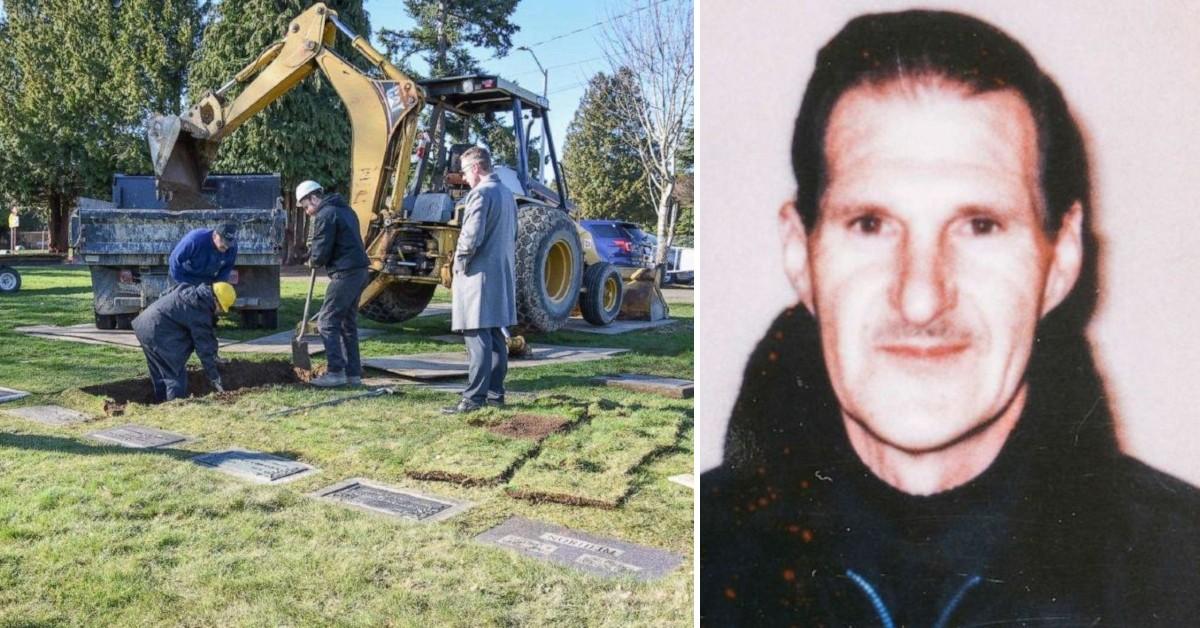
The introduction of modern DNA technology persuaded Seattle police to re-open Galvin’s case. In 2002, the police sent off Galvin’s clothes for DNA analysis. While the DNA analysis wasn’t successful, a second try with GEDmatch in 2019, a genetic genealogy company, led them to Frank Wypych, according tTHE EL SEGUNDO OFFICERS MURDERSo ABC News.
Wypych, who died in 1987, worked as a security guard at the Seattle Center. His death wouldn’t allow for prosecution, but it did provide closure for the Galvin family.
THE EL SEGUNDO OFFICERS MURDERS
Police officers Richard Philips and Milton Curtis of El Segundo, California, were shot and killed while giving the soon-to-be killer a ticket on July 22, 1957. Before being pulled over, the suspect sexually assaulted a minor after holding two couples hostage at gunpoint, according to the Officer Down Memorial Page.
After entering the suspect’s DNA into a new fingerprint database, they tracked down the killer. On Jan. 29, 2003, police arrested then 70-year-old Gerald Mason for the murders. The fingerprints were linked to a 1956 burglary that occurred in South Carolina.
A court sentenced Mason to life in prison for the murders. He died in January 2017.
THE GOLDEN STATE KILLER
How Long Did It Take To Solve The Case?: 43
From 1975 to 1986, an unknown serial killer terrorized Sacramento County, California, residents. Going by several aliases, such as “The East Area Rapist,” “The Golden State Killer” and “The Original Night Stalker,” the suspect entered the homes of his victims to rape and murder them, as their spouses watched in horror.
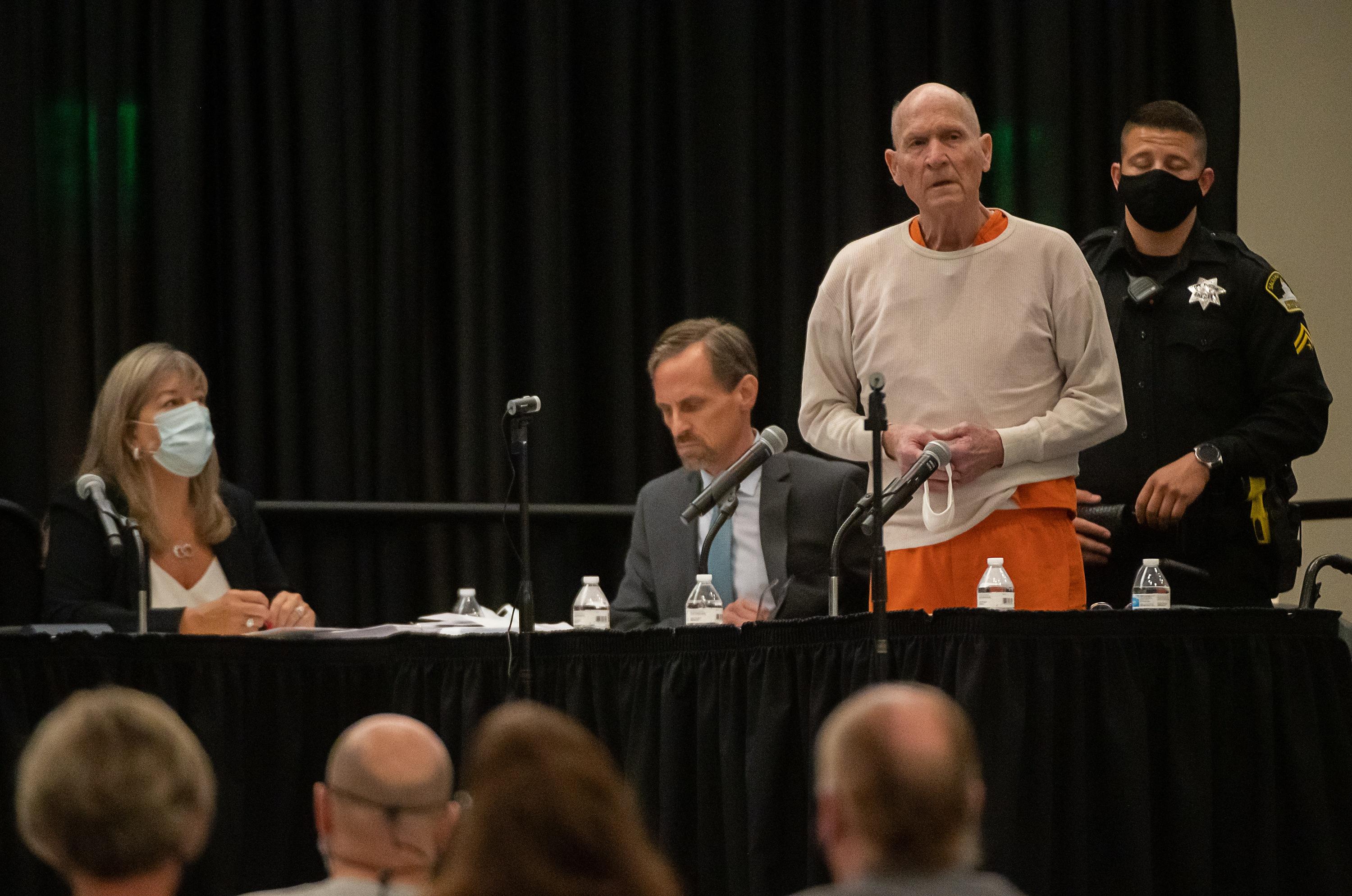
Joseph DeAngelo
Despite the multiple investigations into the crimes, authorities couldn’t find the killer, leading the case to become cold.
However, with genetic genealogy, police got a break in the case several decades later, according to ABC 10. When one of the family members of the serial killer submitted their DNA to an ancestry program, the DNA led to a match in the DNA from the crime scenes collected by police.
On April 24, 2018, police arrested Joseph DeAngelo on charges related to his crimes during the 1970s and 1980s. He is currently serving a life sentence without the possibility of parole.
THE LYON SISTERS MURDERS
How Long Did It Take To Solve The Case?: 42 years
In March 1975, 12-year-old Sheila Lyon and Katherine Lyon disappeared in a Maryland mall, Wheaton Plaza. According to CBS News, the girls’ friend reported seeing a man following the sisters around the mall. A sketch was created based on the witness’ description of the man, which included a young man with long hair and acne scars on his face.
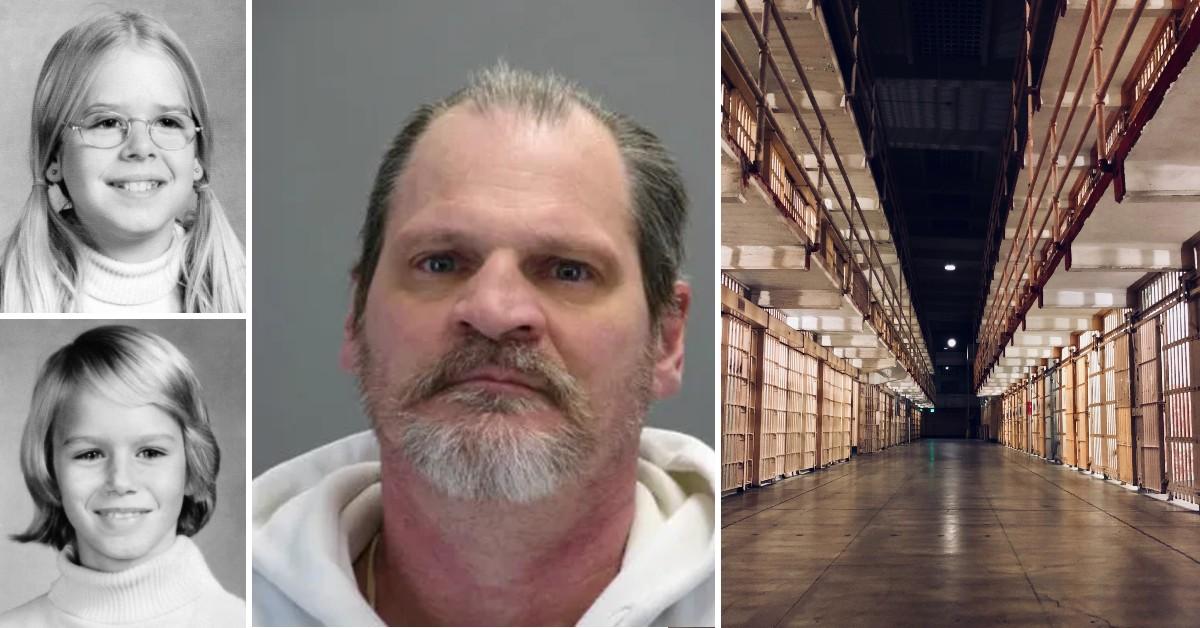
The case went cold for decades until detectives reponed it to began looking at it in 2013. Detectives honed in on Lloyd Lee Welch Jr., who they had found a 1977 composite sketch of that matched a mugshot for a burglary arrest near Wheaton Plaza.
After confessing to abducting and sexually assaulting the Lyons sisters, a court sentenced him to 48 years in prison in 2017.
Welch Jr. denies murdering the Lyons sisters.
Become a Front Page Detective
Sign up to receive breaking
Front Page Detectives
news and exclusive investigations.
